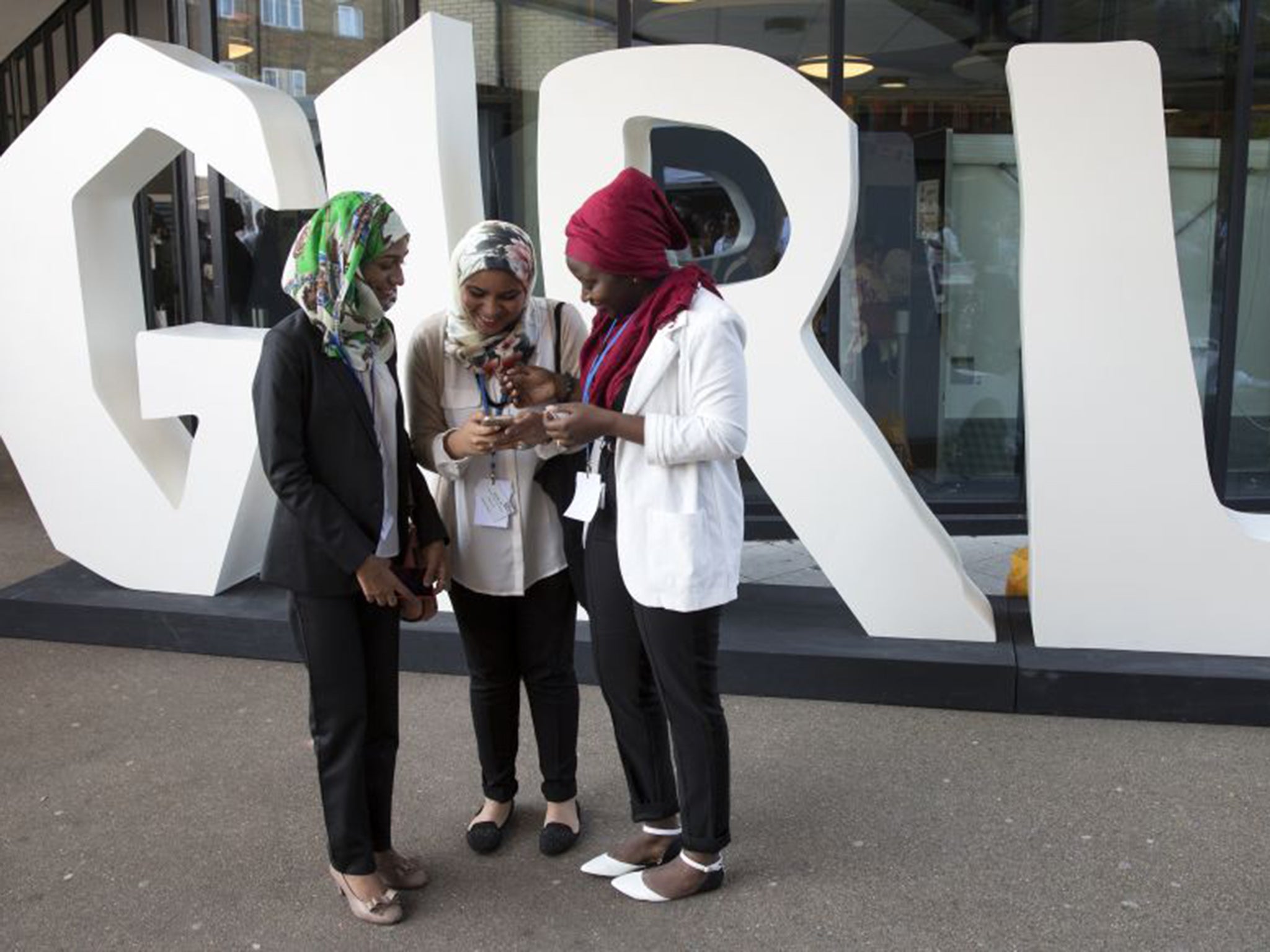Teachers and health workers will be legally required to report FGM under new law
'This Government is clear that we will not allow political or cultural sensitivities to get in the way of tackling abuse, whatever form it takes'

Your support helps us to tell the story
From reproductive rights to climate change to Big Tech, The Independent is on the ground when the story is developing. Whether it's investigating the financials of Elon Musk's pro-Trump PAC or producing our latest documentary, 'The A Word', which shines a light on the American women fighting for reproductive rights, we know how important it is to parse out the facts from the messaging.
At such a critical moment in US history, we need reporters on the ground. Your donation allows us to keep sending journalists to speak to both sides of the story.
The Independent is trusted by Americans across the entire political spectrum. And unlike many other quality news outlets, we choose not to lock Americans out of our reporting and analysis with paywalls. We believe quality journalism should be available to everyone, paid for by those who can afford it.
Your support makes all the difference.Teachers and health workers will be legally required to report cases of female genital mutilation, under plans being launched by the Government this week.
One year on the from the Girl Summit hosted by David Cameron and Unicef in London to mobilise international efforts to curb FGM within a generation, the Home Office will launch a consultation on mandatory reporting of known cases of the practice in girls under 18. The legal requirement will cover schools and hospitals and will be introduced in the autumn.
The mandatory reporting duty is in addition to FGM protection orders, introduced this month to coincide with the start of the school summer holiday, when girls are most at risk. Anyone who fears that someone is at risk of FGM – including potential victims themselves as well as local authorities, teachers, doctors and social workers – can apply to a court for an order. There are 800 forced marriage protection orders already in place.
On Friday it emerged that a police force has secured the first FGM protection order in this country, preventing travel by two young girls who are thought to be at risk of being taken to Africa to undergo FGM.
Bedfordshire Police obtained the order, which allows authorities to seize the passports of people who they suspect are planning on taking girls abroad for genital mutilation. Breaching the order is a criminal offence.
Under the mandatory reporting duty launched this week, frontline professionals, including teachers and hospital and other healthcare workers, will be issued with guidance including legal requirements for them to report known FGM cases.
News of the Government’s plans comes as Liberal Democrat peer Lady Tonge reports that she saw at least 50 girls travelling on a plane from Heathrow airport to Somalia earlier this month. She told police she feared the girls were at risk of FGM, and on Friday it was revealed that Scotland Yard was investigating the matter.
Karen Bradley, minister for preventing abuse and exploitation, said: “Every girl has the right to grow up and make the most of her potential, free from the risk of FGM and child and forced marriage. That is why we have made protecting women and girls from violence and supporting survivors of sexual violence a priority.
“The UK has taken bold action to meet the commitments made at last year’s Girl Summit, and I am proud of what we have achieved. Things are changing, and more and more courageous women and girls are coming forward. But there is more to be done, and ending FGM and child and forced marriage will not be easy.
“This Government is clear that we will not allow political or cultural sensitivities to get in the way of tackling abuse, whatever form it takes.”
In other measures introduced since the Girl Summit, hundreds of Border Force officers have been trained to look out at UK ports and airports for girls at risk of being taken abroad for FGM or forced marriage.In addition, a new offence of failing to protect a girl from FGM has been introduced. Parents can now potentially be held responsible if they fail to take reasonable steps to prevent FGM.
New legislation has been introduced that guarantees lifelong anonymity for victims of FGM. A cross-government FGM Unit has been launched to link up criminal justice organisations, children’s services, healthcare professionals and affected communities. The Department of Health has launched a new national system for collecting data on FGM, and, for the first time, all GPs, mental health trusts and hospitals are now recording when a patient with FGM is identified, and what type of FGM it is. Figures from the Health and Social Care Information Centre show that between September 2014 and March 2015, 3,963 newly identified cases of FGM were reported nationally.
Women, Equalities and Family Justice minister Caroline Dinenage said: “The Government is committed to tackling and preventing the barbaric practice of female genital mutilation. Protection orders are an extremely important step in making sure young women and girls who face the threat of FGM are kept safe.
“These girls and the communities around them now know they will have somewhere to turn, that the law is on their side and help is out there. We will continue to work closely with community groups and help to raise awareness of FGM. We will not stop until this horrific practice is stamped out.”
Join our commenting forum
Join thought-provoking conversations, follow other Independent readers and see their replies
Comments